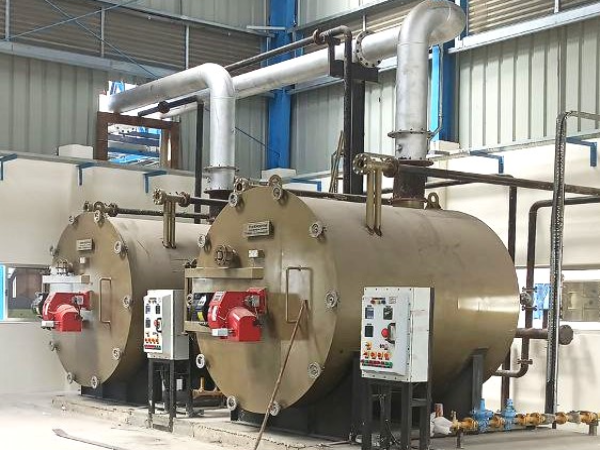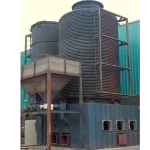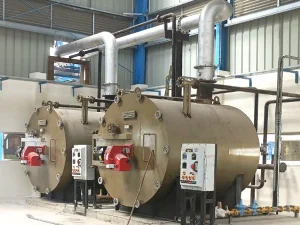Industrial Thermic Fluid Heater for Consistent, Safe & Efficient Process Heating
Thermic fluid heater - FLUIDTHERM
Thermic Fluid Heater is heating equipment, used in industrial applications requiring high-temperature heating at low pressures.
Thermic Fluid heaters are closed-loop systems, where the thermic fluid is heated in a specially designed heat exchanger through a controlled combustion of fuel. Hot oil is pumped through a high-temperature pump into the pipeline circuits, and gets circulated back to the heater, where it is heated again.
Our Thermic fluid heaters are designed for many fuel options like oil, gas, biomass, coal, wood, etc.
Capacity Range
Fuel Options
Model Options
Industry Segments
Catalogue
Product Video
Capacity Range
1 lac Kcal/hr to 60 Lac Kcal/hr
Fuel Options
- All Biomass fuels
- Rice husk
- Briquettes
- Coal
- Agro-waste
- Wood & wood chips
- Light oil
- Heavy oil
- PNG
- LPG
- Biogas
Model Options
- Oil fired
- Gas fired
- Dual fuel fired (Oil cum gas)
- Manual
- Fluidised Bed Combustion
- Automatic feeding
Industry Segments
- Textiles
- Namkeen
- Food processing
- Chemicals
- Rubber and other
Catalogue
Product Video




